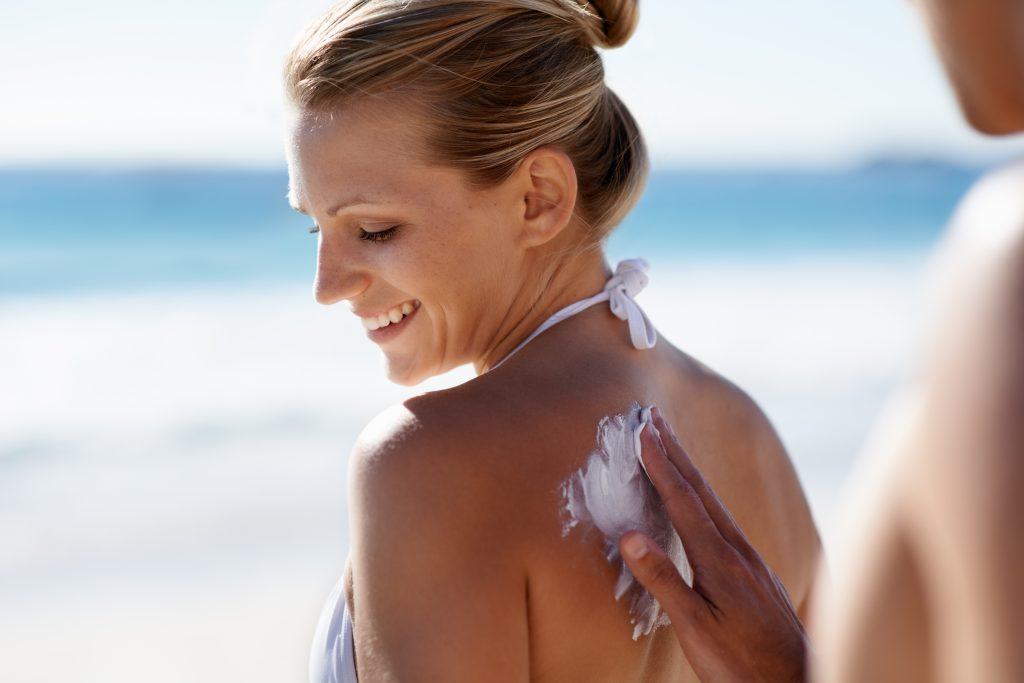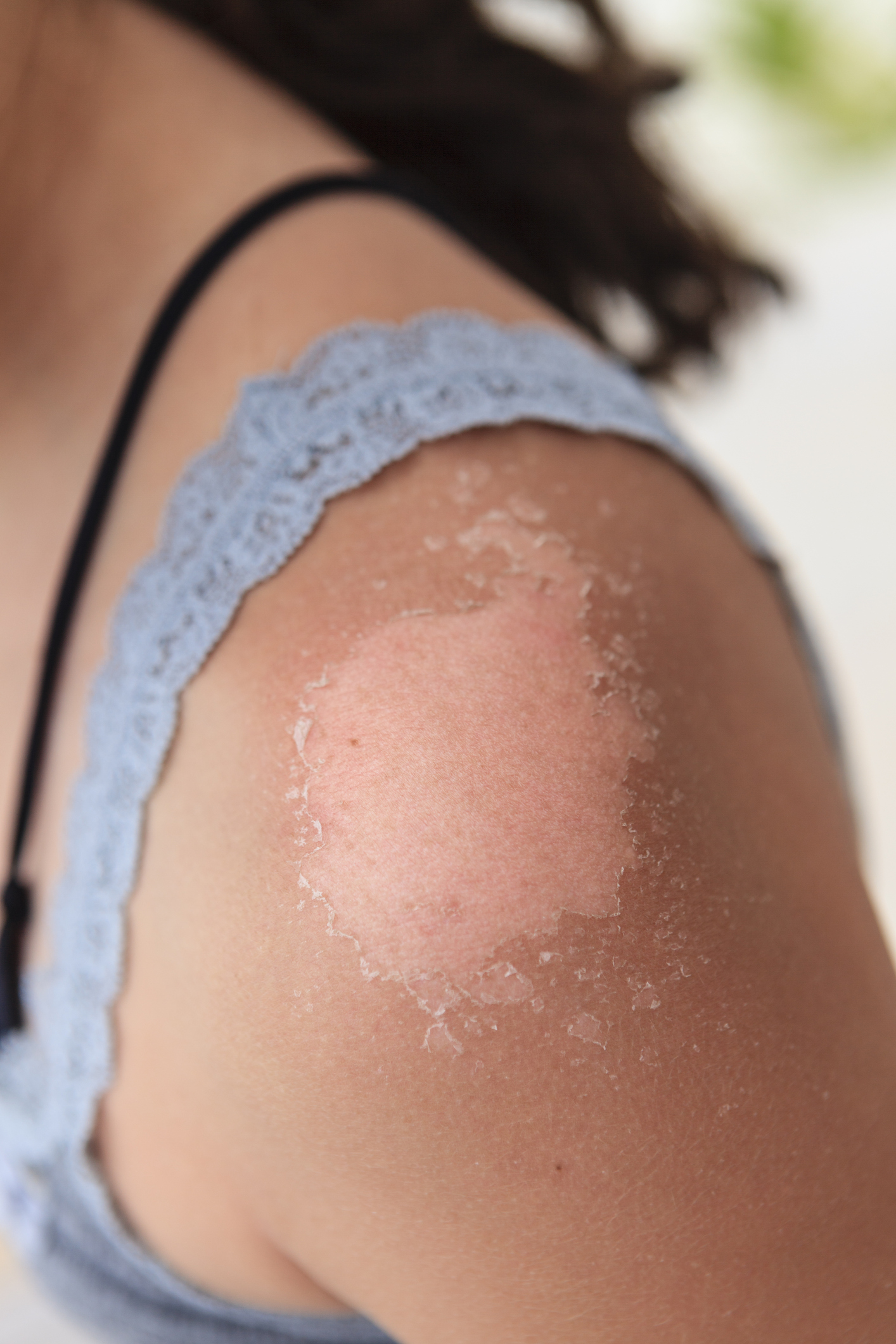U.S. Dermatology Partners Sunscreen Recommendations
Sunscreen 101
Individuals who are prone to sunburn are thought to be genetically predisposed to skin cancer. Risk is also increased when exposure to UV rays is excessive. Sunscreen helps prevent the damaging effects of ultraviolet radiation, including skin aging and skin cancer like melanoma and squamous cell carcinoma.
Sunscreens are rated and labeled with a sun protection factor (SPF) that measures the fraction of sunburn-producing UV rays that reach the skin. The higher the SPF, the greater the protection.

Sunscreen is a topical product that is used to reflect or absorb some of the ultraviolet rays from the sun.
Find This Service Near You
Sunscreen Recommendations
- Apply early, 15-30 minutes before sun exposure, to allow time for a protective film to form.
- Choose sunscreens labeled “broad spectrum,” indicating both UVA and UVB protection.
- Approximately 1 oz of sunscreen (enough to fill a shot glass) is needed to effectively cover an adult.
- For everyday use, sunscreen with an SPF of 15 may be adequate. However, if you or your family has a history of skin cancer, burn easily or do not tan, a sunscreen with an SPF of 30+ should be used. Despite some conflicting reports, sunscreens with SPF 30+ DO provide additional protection and are recommended if you are spending extended amounts of time outdoors.
- Reapply every 1-2 hours, even when using high SPF sunscreens.
- Water resistant sunscreens are labeled as either 40 or 80-minute water resistant and need to be reapplied after swimming or heavy sweating. Some new sunscreens are formulated for application even on wet skin, which makes reapplication even more convenient.
Which Sunscreen Is Right for Me?
The best sunscreen is the one you will use. You may have to experiment to find the right fit.

A child as young as 6 months can have sunscreen applied.
Some sunscreens we suggest:
For Sensitive Skin. Neutrogena Pure and Free Baby, Coppertone Sensitive Skin, Vanicream.
For Babies. Coppertone Water Babies Pure and Simple, Neutrogena Pure and Free Baby. (Remember: A child as young as 6 months can have sunscreens applied!)
Elegant Products. Elta MD UV Daily, Prescribed Solutions Up the Anti, Anthelios daily moisturizer cream, Neutrogena Pure and Free liquid, Cerave AM lotion SPF 30.
For Men. Neutrogena for Men.
Sunscreen: Dangers of Tanning and Burning

If you or your family has a history of skin cancer, burn easily or do not tan, a sunscreen with an SPF of 30+ should be used.
Ultraviolet (UV) rays come from the sun or from indoor tanning. When UV rays reach the skin’s inner layer, the skin makes more melanin. Melanin is the pigment that colors your skin. As it moves towards the outer layers of the skin, it becomes visible as a tan.
Despite popular opinion, a tan does not indicate good health. Instead, a tan is a response to injury. Your skin cells are signaling that they have been hurt by UV rays by producing more pigment. People burn or tan depending on their skin type, the time of year, and how long they are exposed to UV rays.
The six types of skin, based on how likely it is to tan or burn, are:
- Always burns, never tans, sensitive to UV exposure.
- Burns easily, tans minimally.
- Burns moderately, tans gradually to light brown.
- Burns minimally, always tans well to moderately brown.
- Rarely burns, tans profusely to dark.
- Never burns, deeply pigmented, least sensitive.
Although everyone’s skin can be damaged by UV exposure, people with skin types 1 and 2 are at the highest risk.
Are Spray-On Sunscreens Effective?
Spray sunscreens are a convenient and easy, but they do have some limitations. Coverage may be spotty, so ensure that you apply enough and then rub it in for more even coverage. It is best to spray it on your hands first, then apply to your face using your hands to keep from inhaling the product.
*Results may vary by individual
